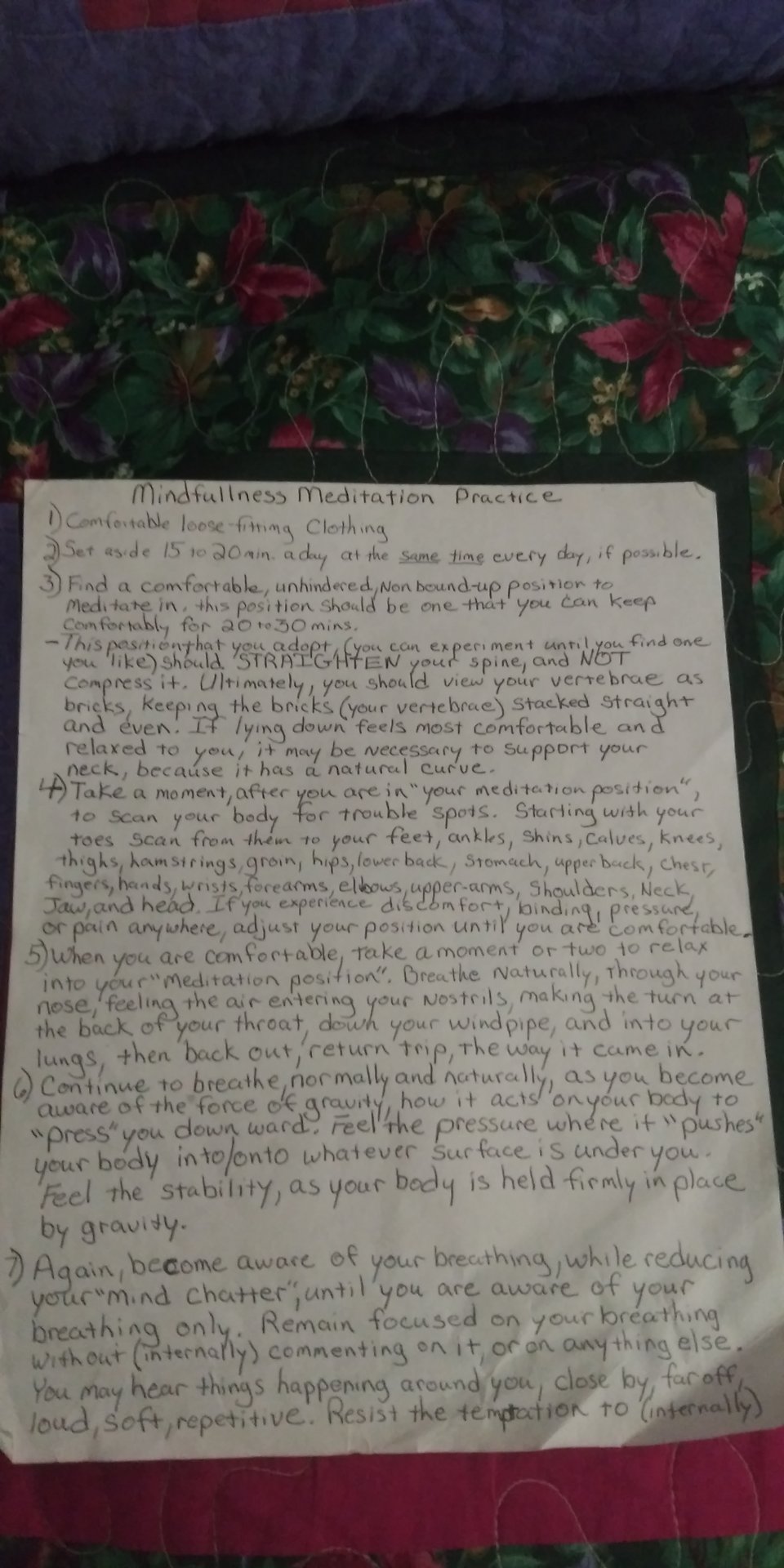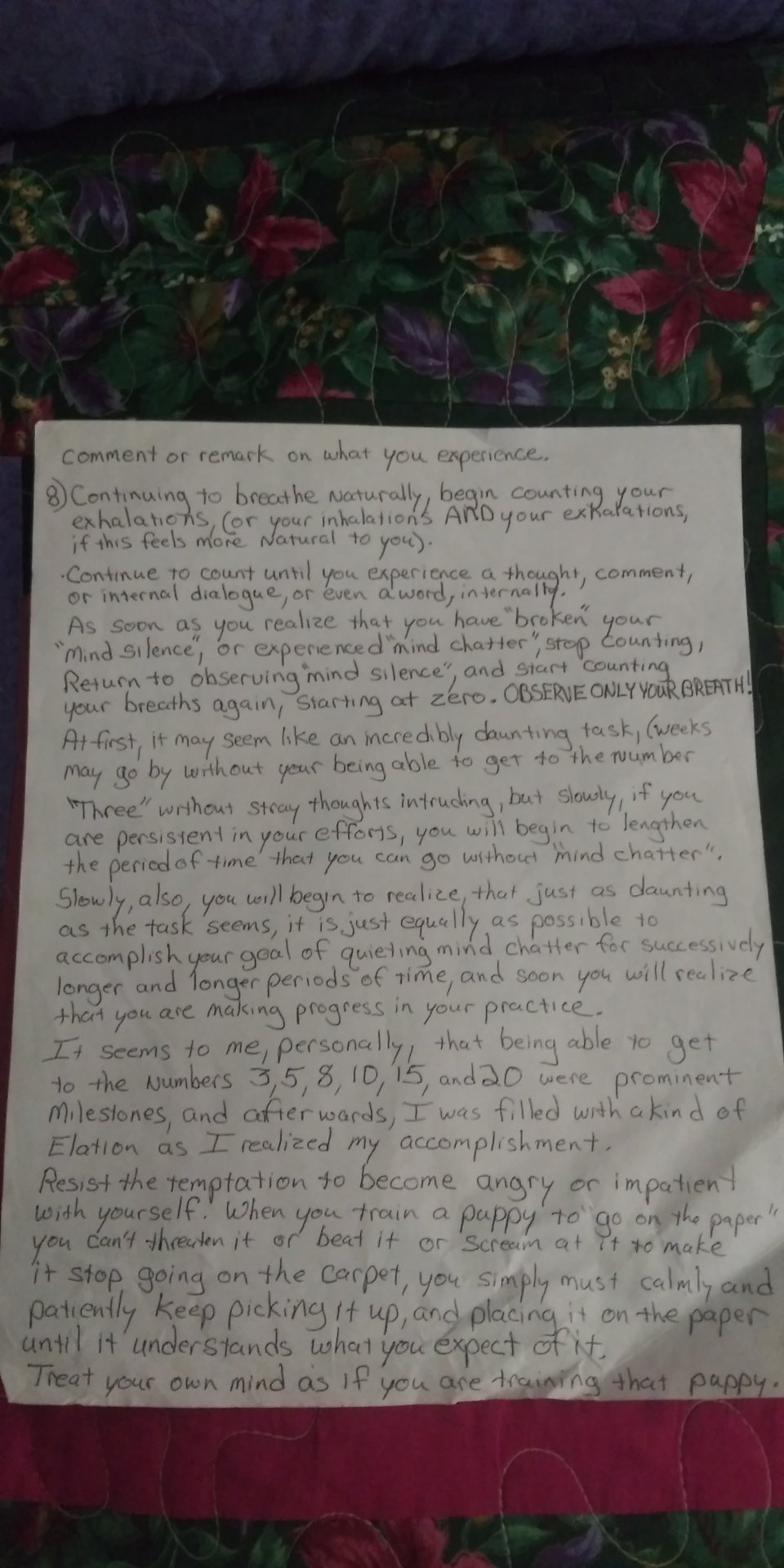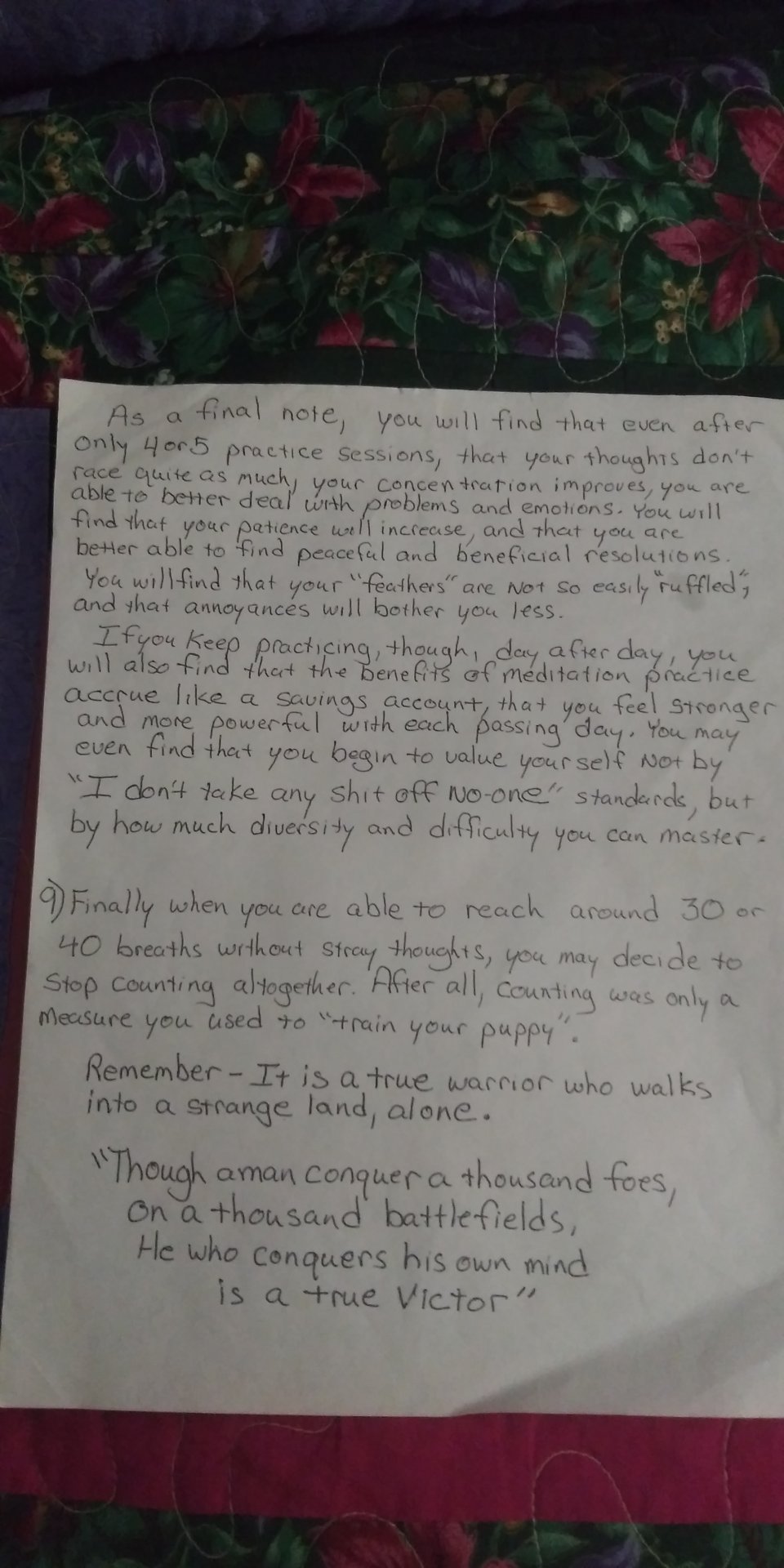Have you tried to clear your mind by counting your breaths? It's easy (for me) to think of nothing else when I count each exhale, up to 10 and then start over again.
Or a new one I learned to do for deeper breathing is to say to myself while I'm breathing in "I know that I can breathe in" and then on the exhale " I know that I can breathe out". If you're saying that in your head then you will be more in the moment.
I've been told that it's virtually impossible for anyone to be focused 100% of the time, but we just bring ourselves back to the breath.
If we look at Mindfulness Meditation as an end unto itself, it is easy to see it as just another narrow scoped practice. The truth of the matter is, that Mindfulness Meditation helps us to reprogram our minds.
The hindbrain is the reptilian complex where our fight our flight process takes place-- not conducive to happiness. M.M. effectively mutes the fight or flight response, allowing us to be able to genuinely relax.
The midbrain is the seat of emotion, it is where emotion both originates, and resonates. Emotion is a poor mistress. It leads us to act as a response to the cue of emotion-- a base and ineffective way to live and act. Emotion can feel good, but it is a mistake to believe that that means that it will lead us to act in an appropriate way. M.M. also effectively shuts down the emotional response, so that we can experience true equanimity.
The fore brain is the newest evolutionary addition, and it is the seat of reason, future planning, cognition-- the place where appropriate responses to stimuli can be properly planned, whether by single act, or algorithm. It is the place where we realize that our instinct to jump in the water to save someone is not only likely to fail, but it is likely to get us killed as well. It plans a more effective rescue, and more likely to succeed, than emotion. M.M.
attenuates and
activates the forebrain, making our actions and responses far more effective.
When we can meditate, counting breaths to about 40 or 50, we have reached a place where we can maintain our equanimity more or less indefinitely. At that point, we can relook at our midbrain, and activate it selectively-- only the noble, positive emotions. With the forebrain and sufficient practice, we can do this. This is the bliss that we can reside in, here and now.
The past cannot be revisited, edited, or changed. to dwell in it is suffering. The future is a fantasy played on the blank screen of the future-- a fantasy. A fantasy that we cannot even respond to, as it has not, and may never, come to pass as we imagine it will, whether it is hopeful or fearful. We only exist, have power, in the here and now. The here and now is the only place where we can experience true happiness. M.M. roots us in the here and now, the only place and moment that we truly exist. The present ever rides a razor's edge-- it cannot exist a millisecond before, or after ... NOW. And even before your words echo to silence, that past is already unattainable.
It is when we can stop obsessing about the past and the future that we can truly be happy.
When we practice Mindfulness Meditation to this end, we can
reside in happiness. This is bliss.
There is no way to happiness.
Happiness IS the way.
May you be well.
sidd



